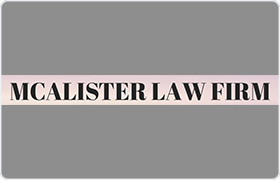Picayune White Collar Crime Lawyer, Mississippi
Sponsored Law Firm
-
 x
x

Click For More Info:
-
McAlister Law Firm, LLC
419 Security Square Gulfport, MS 39507» view mapCriminal Defense Law Your Gulf Coast Attorney
An Attorney with Nineteen years of court room experience. Licensed in the States of Mississippi and Alabama.
228-265-5190
Not enough matches for Picayune White Collar Crime lawyer.
Below are all Picayune Criminal lawyers.
Tara Kellar Tebo
Criminal, Personal Injury, Social Security, Family Law
Status: In Good Standing Licensed: 16 Years
Becky Allen-Farrell, PLLC
Personal Injury, Criminal, Estate, DUI-DWI
Status: In Good Standing Licensed: 23 Years
FREE CONSULTATION
CONTACT Carolyn McAlister Gulfport, MS
Carolyn McAlister Gulfport, MS
